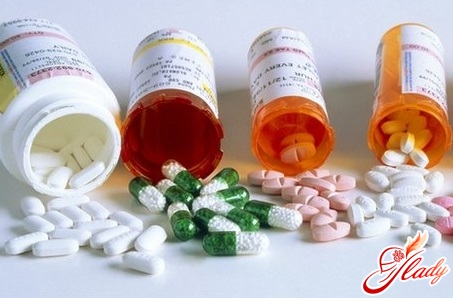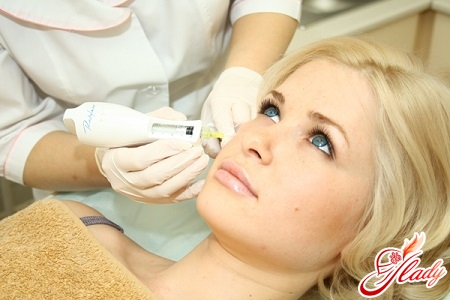
Menopause is a completely natural thingphysiological phenomenon, but at the same time it is a very critical period in a woman's life. It can cause her a lot of trouble, in particular, due to the hormonal changes that occur in the body at this time. Changes in a woman's body affect her physical and mental state: tension in the body's adaptive capabilities, vulnerability, mood swings and hot flashes, up to the development of depressive states. Along with this, many women prefer to endure the discomfort that accompanies menopause and refuse drug treatment, arguing that the hormonal drugs that doctors prescribe in this case can lead to cancer. But medicine does not stand still, and now doctors increasingly prescribe antidepressants for menopause. They can alleviate a woman's condition, return her to a full life and at the same time do not negatively affect her health. A modern woman no longer has to endure climacteric syndrome.

Depression in menopause
During menopause, climacteric disease may develop,endogenous, involutional or psychogenic depression. Antidepressants are prescribed specifically to correct depression during menopause. Climacteric depression is characterized by depressed mood, tearfulness, decreased interest in what is happening around and in one's own personality, decreased activity, anxiety, hot flashes at night, sleep, appetite and sexual desire may be disturbed (either decreasing or increasing). Psychogenic depression is accompanied by an increased sense of remorse and guilt, sleep and appetite disturbances, sudden weight loss, pessimistic views on the future, and heavy thoughts. The condition sometimes becomes more acute, sometimes subsides. Endogenous depression is accompanied by a melancholy mood, lack of joy and pleasure, apathy, decreased activity, pessimistic attitude towards past, present and future life, self-blame, sleep disturbances, appetite, weight loss, and decreased sexual desire may be observed. Hot flashes occur, but they are not the main reason for complaints. Involutional depression is characterized by painful or unpleasant sensations, anxiety, restlessness, fussiness, hypochondria, excessive concern for one's own health. In extreme forms, patients note that entire body systems do not work or fear death (usually violent), poverty, global catastrophe.
Features of antidepressant treatment in menopause
If earlier to help a woman inmenopause, hormone replacement therapy was prescribed, but now it is no longer a panacea, since it not only has a number of side effects and contraindications, but can also significantly worsen the condition of a woman suffering from depression. It is antidepressants that can gently, safely and effectively help in this case. They have a minimum of side effects, do not even cause drowsiness and are well tolerated, unlike hormonal drugs. Antidepressants are psychotropic drugs that are used primarily to treat depression. In such patients, they improve mood, reduce feelings of melancholy, depression, anxiety, apathy, increase activity and general emotional background, restore sleep function and appetite. When treating with antidepressants, it is important to know and follow some rules, since antidepressants are serious drugs that cannot be taken at random. Firstly, only a doctor should prescribe the drug! Self-medication is simply unacceptable. Secondly, almost all antidepressants are prescribed and discontinued gradually, that is, the dose is gradually increased and gradually reduced. This is done to avoid side effects and to allow the body to adapt to the drug. Gradual discontinuation is necessary so that the body gradually weans itself off the drug. This rule cannot be neglected, since any antidepressant (or rather, its discontinuation) is always a certain stress for the body. Thirdly, do not expect the effect to appear after the first dose of the pill. No, this will not happen, since the active substances accumulate in the body gradually. You will feel the first effect no earlier than after 5-7 days. Some antidepressants begin to work only after 2-3 weeks. Fourthly, even if it seems to you that the drug is not working, continue to use it (unless the doctor has discontinued it himself). Be patient and be sure that you will get out of depression: the specificity of this disease is such that it is curable for everyone. It's just that for some people it's earlier, and for others it's a little later.
Antidepressants used during menopause
Among the drugs that work besthave proven themselves in the treatment of women during menopause, especially selective serotonin reuptake inhibitors: Paroxetine, Fluoxetine, Fluvoxamine. They can also be used together with drugs that are intended to relieve a hot flash: Sonapax, Etaperazine (these are neuroleptics, so they should be used in small doses), Depakine, Finlepsin (these are anticonvulsants). A very good antidepressant is Coaxil (Tianeptine). It belongs to the class of tricyclic antidepressants and combines antidepressant, energizing, anxiolytic and vegetotropic effects. Its advantage is good tolerability by patients. Doctors note among the group of antidepressants and such drugs containing the active substance venlafaxine. The pharmaceutical market offers the following drugs that contain it: Efevelon, Velaxin, Velafax, Fluoxetine (Profluzak, Prozac, Fluval), Poroxetine (Actaparoxetine, Adepress, Paxil, Rexetin, Plizil). Scottish scientists from Glasgow came to an interesting conclusion during their research. They found that antidepressants used to treat women with climacteric syndrome have an additional positive effect on the body. These drugs normalize the condition of blood vessels, thereby reducing or completely preventing hot flashes. In 60% of women who take antidepressants during this period, their overall physical and mental well-being improves significantly. In any case, remember: no matter what articles on the Internet, TV ads or advice from friends promise you, the drug should only be prescribed to you by a doctor. No one forbids you to discuss the drug you are interested in with him, but the decision should remain with the specialist.









